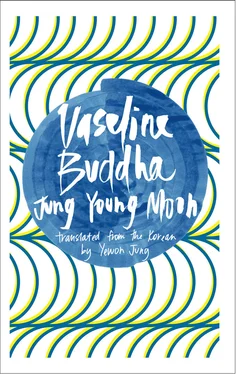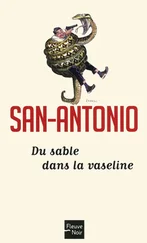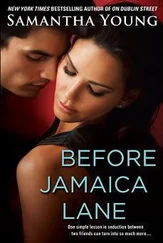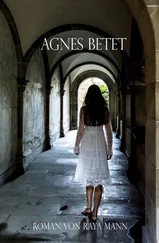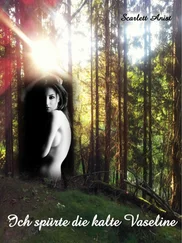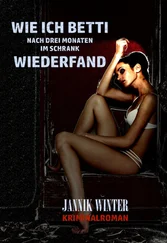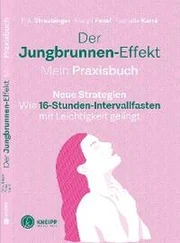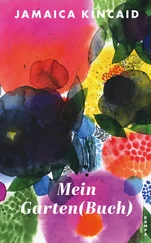Sitting in the courtyard of a royal palace in Budapest, looking at false teeth that had found someone who needed them because he had no teeth, and were now possibly discarded by him, I considered placing something somewhere for other travelers, but it was so cold that I could come up with nothing other than the idea than that it might be nice to place a pineapple lengthwise on a seesaw in a playground, or a skate on a slide, or a cool artificial eye on a windowsill in a museum, or a living lobster in a sink in a public bathroom.
Once, I thought about things you could put in your house, things that could make you feel good in a strange way when you stared at them in a bored and dazed state, unable to sleep, such as monkey skulls and artificial eyes. Of those, artificial eyes could be great ornaments, and one day I was quite delighted to learn after reading a book on artificial eyes that in the past glass was used as material for artificial eyes, but now acrylic resin was used, and not only were there artificial eyes of various forms, much fancier than natural human eyes, but there were three-dimensional artificial eyes, vacuum artificial eyes, and even moving artificial eyes as well, and because the movements of artificial eyes weren’t as versatile as normal eyes, someone wearing an artificial eye should make a habit of moving his head along with the eye when looking at people or objects.
Anyway, I sat side by side with the false teeth in the bone-freezing cold, thinking stupidly that I could think about something that could warm me up, but no thought could warm me up. Instead, my teeth began to clatter and shake — I was clenching my teeth and it wasn’t easy to clench shaking, clattering teeth, but although the cold was making me miserable, the sound of clattering teeth, which made their way through the inside of my face to the ears, was pleasant — and while looking at the false teeth that were looking at me as if to say that they felt sorry for me, I pictured most people from the king down, before the invention of the modern false teeth, whose mouths looked disfigured with rotten or missing teeth before the invention of the modern false teeth — just as certain people in tropical regions all had red teeth because they always chewed on a certain fruit — talking to each other and laughing or getting angry, and forced a smile at the false teeth and thought about what to do with them. It didn’t seem that I could leave them without making up my mind as to whether I should keep an eye on them, or leave them to their own.
In the meantime, snow began to fall again and thickened, and it was growing as dark as night even though it was morning, and even lightning struck in the distant sky. If not for the cold weather, the teeth and I might have sat side by side and chatted like people who had met on a walk, having a hard time thinking of right things to say. So as the snow that was piling up on my head and shoulders piled up on the false teeth, a conversation about how someone who had never stayed up a night on a bench in the courtyard of a royal palace in Budapest on a cold winter’s day couldn’t say anything about what it truly meant to gnash your teeth might have taken place between the teeth, which looked as if they had stayed up a long, cold night on the spot, and me.
But it was so cold that I could no longer sit on the bench with the false teeth, so I checked to see if anyone was watching and then put them stealthily in my pocket even though I could have been picking up something someone had discarded, after which I realized that stealing someone’s false teeth was a very thrilling thing to do. And at the same time, it seemed as if I’d done a good deed, done the right thing, by taking the false teeth that looked as unfortunate as a kitten that had lost its mother and was begging you to take it with you.
In the end, the lovely false teeth that must have allowed their former owner to chew and swallow his food, smile with his gums showing in happy moments, bear his teeth at growling dogs, and perk up his ears to the sound of his false teeth clattering severely, shivering as severely as I was, on a very cold day, came to meet a new owner, and live a different life in a shoebox in my house, and became the best souvenir from my trips, and whenever I returned from a trip after that, the first thing I did was take it out and look at it.
But this unlikely story isn’t true. It’s true that I shivered in the cold in the courtyard of an old royal palace in Budapest, but what I found on the snow-covered bench when I came out into the courtyard after taking a look around the museum for a little while, having come to Hungary during the night although I’d originally intended to go to a city in Austria by getting on a passenger car of the wrong train — in Europe, there are many opportunities to get on a passenger car of the wrong train, and you can end up greeting morning in Italy when you had intended to go to Switzerland, but it’s one of the charms of traveling by train in Europe — and discovering upon waking up in the morning that I had arrived in Budapest, was an apple someone had taken a bite out of, with clear teeth marks on it, and the story about the false teeth is something I made up. No, there was no such thing as an apple on the bench, only the trace of something like an apple in the form of a hollow semicircle in the snow. No, how about changing the story, by changing the previous statement, and experiencing a confusion of memories, or artificially creating a confusion of memories, or saying that I was confused, and saying that there was only snow on the bench, and no such thing as a hollow semicircle, or that I took out an apple from my bag and placed it on the snow-covered bench, or that actually, there wasn’t even snow on the bench? What if by doing so, I made it impossible to tell how much of the story was true, thus turning the story about the false teeth into a fact that shows that what people commonly call a fact always contains something that’s not a fact, that in fact, the boundary between fact and fiction is quite vague? So what if this whole story about false teeth is in fact a means of making up, in my own way, memories or impressions of my trip long ago to Budapest, to preserve them in myself in any way possible because I recalled the trip while eating an apple at home but everything about it had grown dim, as dim as if I had never taken the trip? (These words are proceeding dizzily among things happening between immovable facts and fiction that hovers around them, or between moving facts and fixed fiction, or among the things that I will make happen. By so doing, I’ll be able to stand in the way of these words turning into a story, even if I can’t keep them from doing so in the end, and I’ll be able to keep them from turning into a narrative, at least.)
When I went to the royal palace in Budapest there was snow piled up on the bench there, and there may or may not have been an apple with someone’s teeth marks on it on the bench, but through a story about false teeth I’m placing a teeth-marked apple on the bench there.
And in a shoebox in my house there’s a set of false teeth, a plaster replica I bought in a souvenir shop on my way back from Budapest. Even now, I take out the replica from time to time and put it on a table by a windowsill and look at it. On this table, there’s a flowerpot with a flower whose name I do not know, and a little statue of an ivory monkey, which is covering its eyes with its hands as if to say that there’s nothing it could bear to see with its eyes open, which is what I like about the monkey statue.
Now, having written a story about false teeth, I take the replica in my hand and become lost in futuristic thought. All devices installed in human bodies, such as artificial eyes and prosthetic legs, elicit great admiration, probably because in them can be seen a model of the most primitive stage of the mechanical man, which could emerge sometime in the future — they’ll be manufactured in factories instead of being born from the womb, but that, too, could be called a birth. This is the kind of thing I see in people who wear things like false teeth and artificial eyes and prosthetic legs, and I very easily think that they’re people from the future.
Читать дальше
